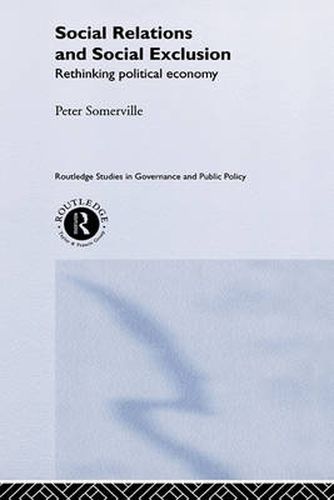Readings Newsletter
Become a Readings Member to make your shopping experience even easier.
Sign in or sign up for free!
You’re not far away from qualifying for FREE standard shipping within Australia
You’ve qualified for FREE standard shipping within Australia
The cart is loading…






Social Relations and Social Exclusion sets out a new approach to understanding society, based on rational choice theory. Starting from a few simple assumptions about the nature and context of human action, this book provides a complete reinterpretation of our major social institutions. Its central aim is to see how far social relations can be explained on the basis of human beings acting in their own interests rather than under the confines of wider social forces. The institutions examined in this book include households, communities, workplaces, social classes and the state. In each case, it is shown how the institution forms a context within which social interaction can be explained in terms of the rational decision taken by the actors involved. A key question in the book is why people choose to enter into social relations in which they are exploited, and the question is answered mainly by reference to established forms of rule that lead people to believe they have no choice. The book criticises the current form of such rule in Britain, arguing strongly for a rethinking of social polices, based on sound principles of universal human liberation.
$9.00 standard shipping within Australia
FREE standard shipping within Australia for orders over $100.00
Express & International shipping calculated at checkout
Social Relations and Social Exclusion sets out a new approach to understanding society, based on rational choice theory. Starting from a few simple assumptions about the nature and context of human action, this book provides a complete reinterpretation of our major social institutions. Its central aim is to see how far social relations can be explained on the basis of human beings acting in their own interests rather than under the confines of wider social forces. The institutions examined in this book include households, communities, workplaces, social classes and the state. In each case, it is shown how the institution forms a context within which social interaction can be explained in terms of the rational decision taken by the actors involved. A key question in the book is why people choose to enter into social relations in which they are exploited, and the question is answered mainly by reference to established forms of rule that lead people to believe they have no choice. The book criticises the current form of such rule in Britain, arguing strongly for a rethinking of social polices, based on sound principles of universal human liberation.